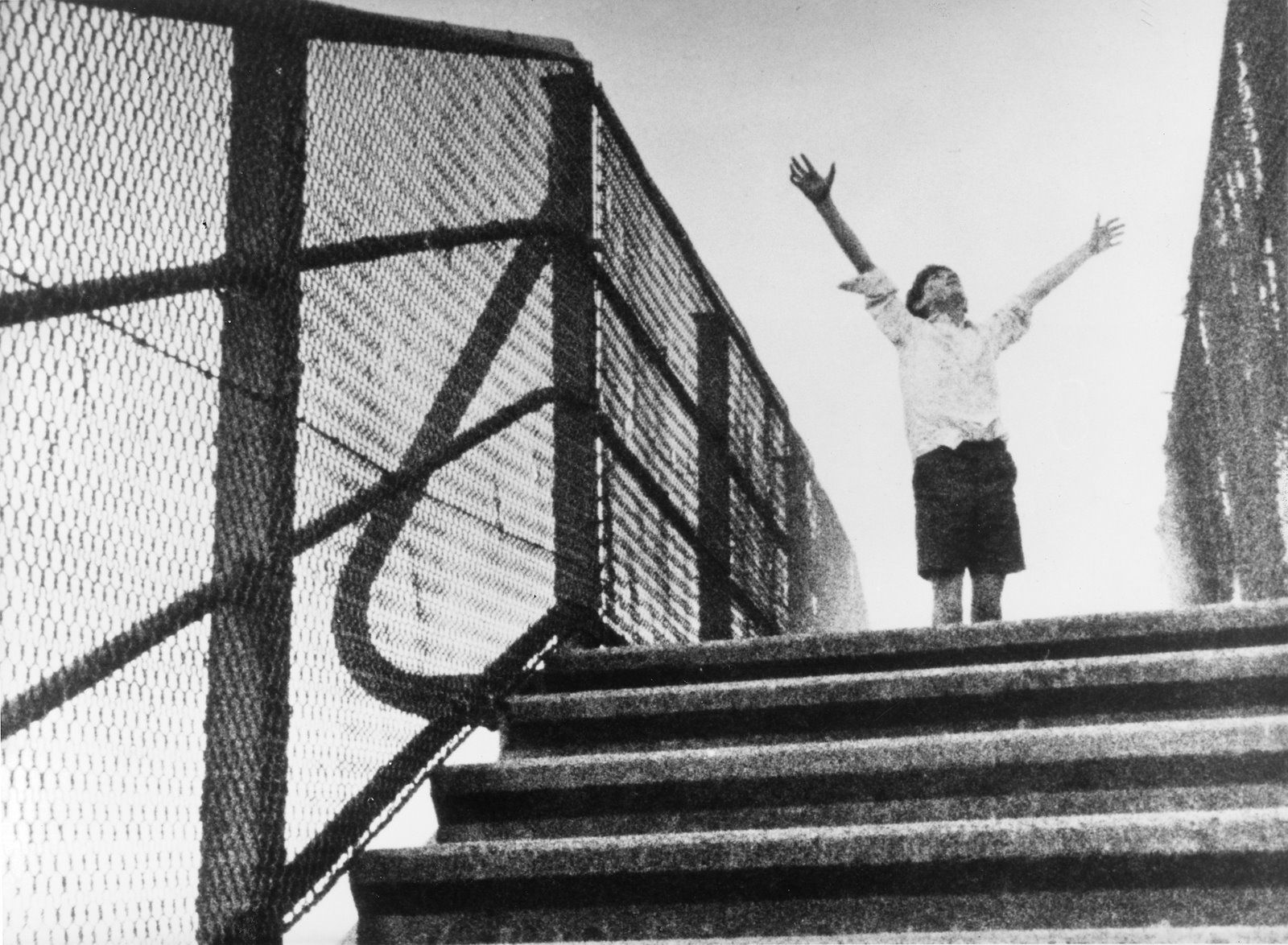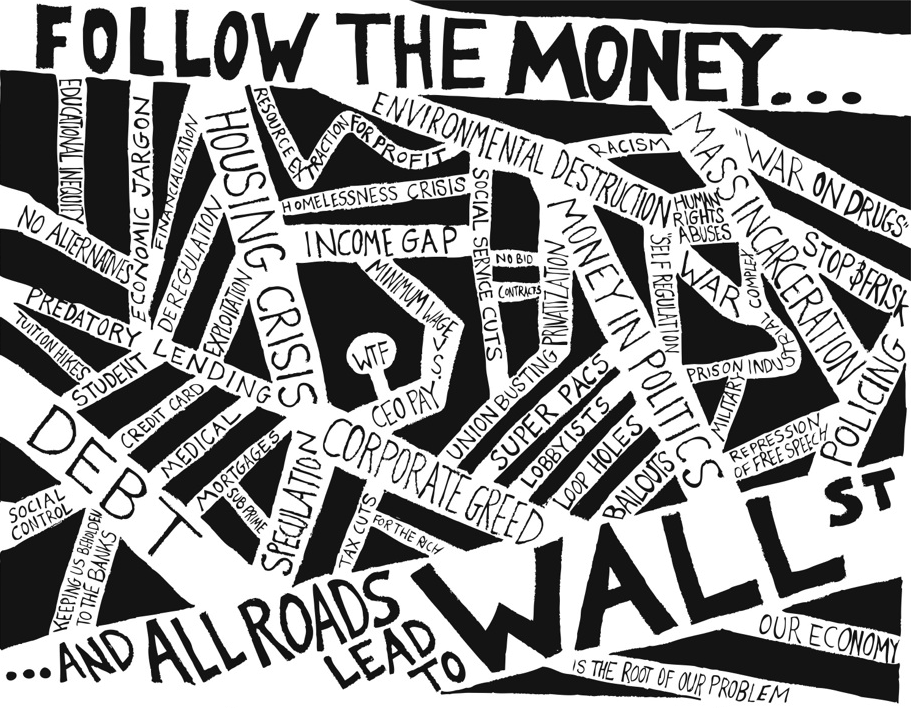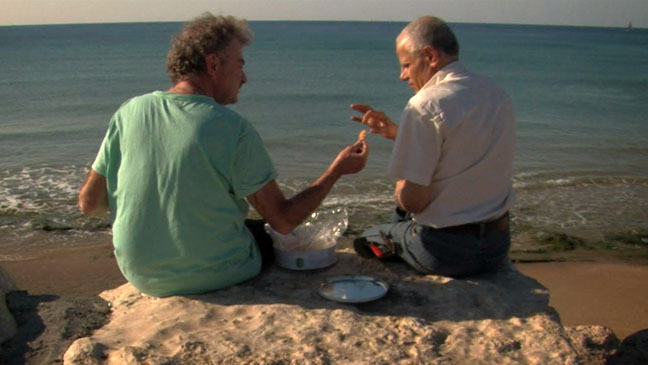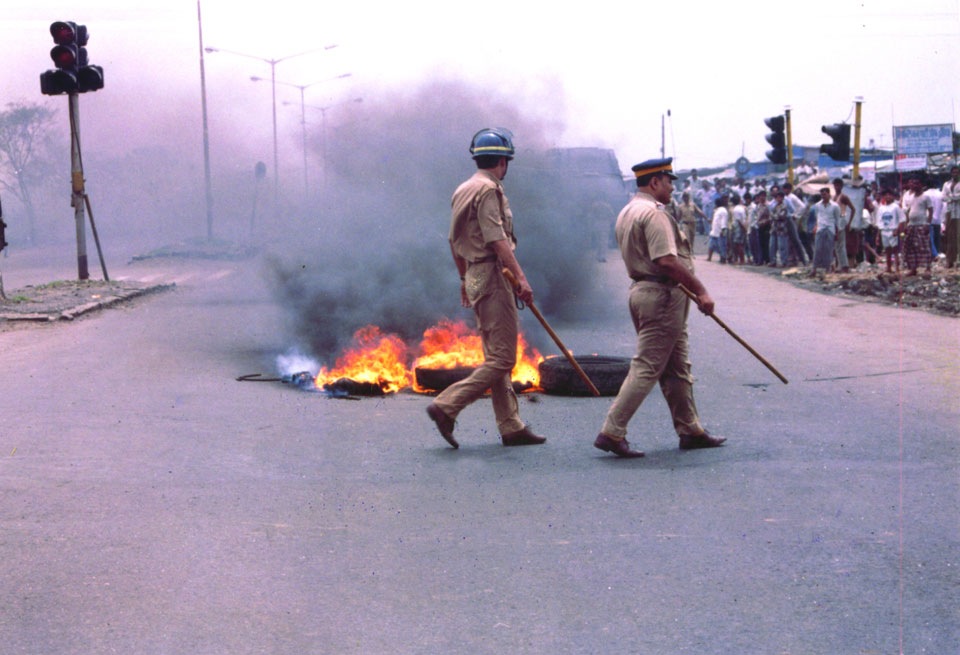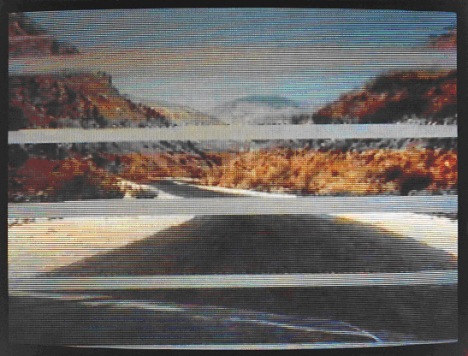
16 February 2014 18:00, Wiels Brussels
“There are works interested in the representation of war, whether fiction or documentary, and others interested in the tectonics of storytelling, writing history, and identifying and producing documents taking the war situation as a case or a base, because war is one of rare situations where notions of common logic collapse, and the notions of evidence in relation to documents and history have to be challenged.”
– Akram Zaatari
How to represent the ongoing struggles in the Middle East, a region in the throes of successive wars, excessive division, and abundant stereotyping? How to displace the dominant vision of never-ending violence, destruction, occupation, resistance, suffering, deeply entangled in what Jean-Luc Godard has referred to as the endless circulation of “brand images”? In his work Akram Zaatari tries to provide some possible responses to this challenge, particularly in regards to the legacy of conflict in his home country, Lebanon. Like many other Beiruti artists who have grown up during the Civil War (1975-1991), Zaatari is concerned with the construction and narrativization of its history and its present day reverberations. A substantial part of his work in film, photography and performance investigates the multiple tensions between memory and history, fiction and document, the public and the private, as a way to intervene in the dominant representation of history. With the use of archival images – partly drawn from the collection of the Arab Image Foundation, which he co-founded – attention is drawn to its constructedness, as well as to its gaps and fissures. In this Dissent! session we will mainly discuss Akram Zaatari’s cinematic work and his use of counter-narrative and docu-fictional strategies, which tend to prompt a fresh perspective on the forms and politics of fiction itself. Perhaps, as Jacques Rancière has suggested, it is above all in situations of radical uncertainty that “the real must be fictionalized in order to be thought.”
Akram Zaatari has been invited by Wiels in the context of his forthcoming exhibition (21.02 – 27.04.2014)
DISSENT ! is an initiative of Argos, Auguste Orts and Courtisane, in the framework of the research project “Figures of Dissent” (KASK/Hogent), with support of VG & VGC.
——————————————————————————————————————————————————————-
About DISSENT!
How can the relation between cinema and politics be thought today? Between a cinema of politics and a politics of cinema, between politics as subject and as practice, between form and content? From Vertov’s cinematographic communism to the Dardenne brothers’ social realism, from Straub-Huillet’s Brechtian dialectics to the aesthetic-emancipatory figures of Pedro Costa, from Guy Debord’s radical anti-cinema to the mainstream pamphlets of Oliver Stone, the quest for cinematographic representations of political resistance has taken many different forms and strategies over the course of a century. The multiple choices and pathways that have gradually been adopted, constantly clash with the relationship between theory and practice, representation and action, awareness and mobilization, experience and change. Is cinema today regaining some of its old forces and promises? Are we once again confronted with the questions that Serge Daney asked a few decades ago? As the French film critic wrote: “How can political statements be presented cinematographically? And how can they be made positive?”. These issues are central in a series of conversations in which contemporary perspectives on the relationship between cinema and politics are explored.
